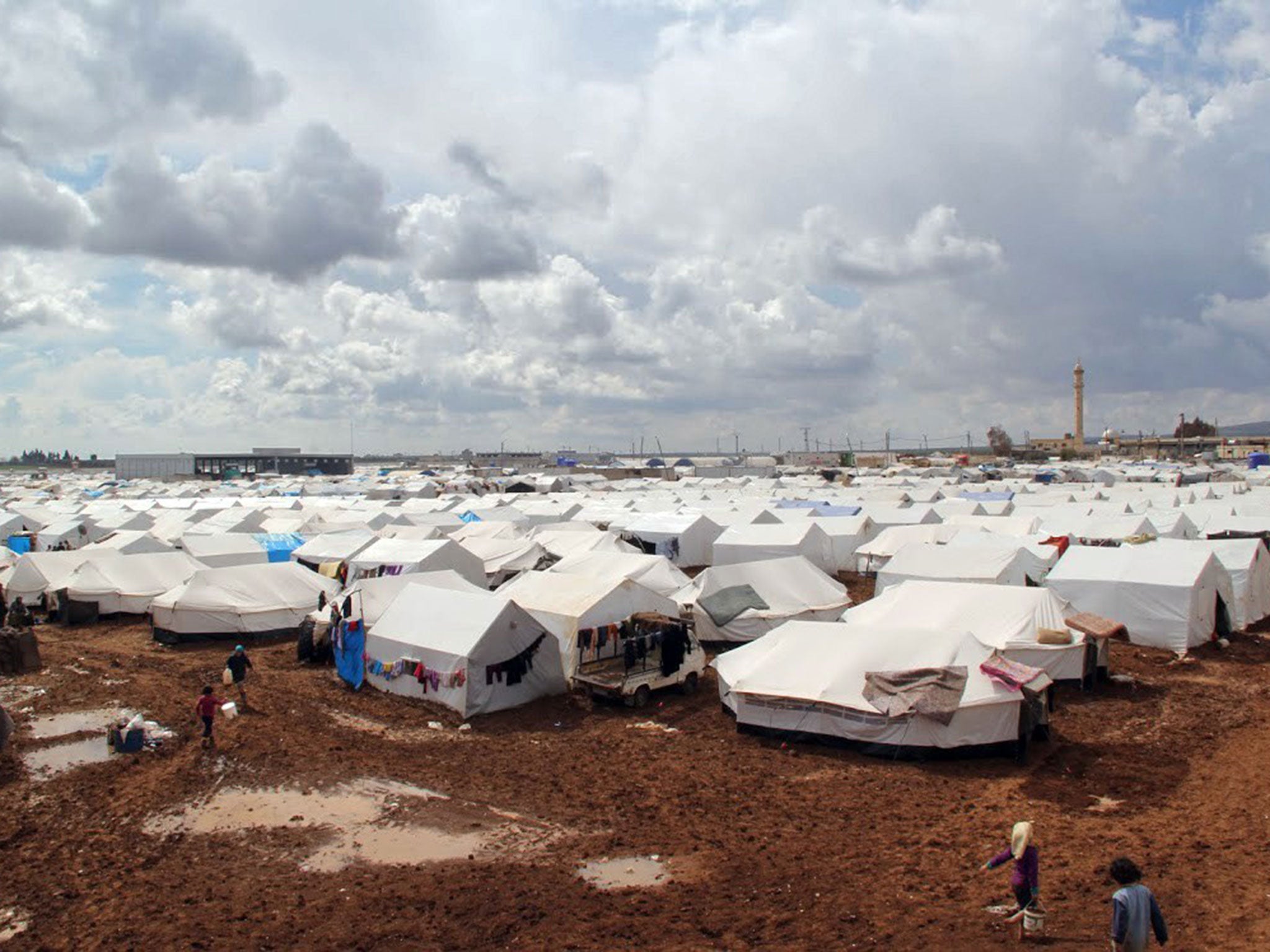Refugee crisis: EU pays €3bn to Turkey in exchange for help on dealing with European migration
Turkey is home to 2.2 million refugees

Your support helps us to tell the story
From reproductive rights to climate change to Big Tech, The Independent is on the ground when the story is developing. Whether it's investigating the financials of Elon Musk's pro-Trump PAC or producing our latest documentary, 'The A Word', which shines a light on the American women fighting for reproductive rights, we know how important it is to parse out the facts from the messaging.
At such a critical moment in US history, we need reporters on the ground. Your donation allows us to keep sending journalists to speak to both sides of the story.
The Independent is trusted by Americans across the entire political spectrum. And unlike many other quality news outlets, we choose not to lock Americans out of our reporting and analysis with paywalls. We believe quality journalism should be available to everyone, paid for by those who can afford it.
Your support makes all the difference.The EU has clinched an agreement with Turkey giving Ankara €3 billion (£2 billion) and a pledge to renew its membership bid in exchange for help holding back refugees trying to make their way to Europe.
The deal, agreed at a special EU summit in Brussels with Turkish Prime Minister Ahmet Davutoglu, is a key part of the strategy to manage the migration crisis that has seen around 850,000 refugees seek sanctuary in the EU this year.
EU Council President Donald Tusk, chairing the summit, insisted he was not being naïve about the challenge that still lay ahead. “We do not expect anyone to guard our borders for us,” he said. “That can and should only be done by Europeans. But we expect a major step towards changing the rules of the game when it comes to stemming the migration flow that is coming to the EU via Turkey.”
Turkey is currently home to some 2.2 million refugees from the Syrian civil war. The agreement requires Turkey to crack down on people smugglers and cooperate with the EU on the return of people who do not qualify as refugees.
Turkish Prime Minister Ahmet Davutoğlu, standing in for President Recep Tayyip Erdogan, pledged to keep the refugees on Turkey’s own shores. "No one can guarantee anything on the Syrian issue, we don't know what will go on in Syria, but I can assure that Turkey will be fulfilling all the promises of the joint plan,” he said, adding that Turkey and the EU were paying the price for the "failure" of the United Nations to solve Syria's crisis.
The agreement means the EU promises to ease visa requirements for Turkish citizens visiting the EU's passport-free Schengen area by October 2016. Mr Davutoğlu underlined how the deal re-energised Turkey’s long-stalled talks on joining the EU. "Today is a historic day in our accession process to the EU," he said.
However, the final summit agreement makes no specific reference to any new areas of negotiation being opened in Turkey’s EU accession bid, apart from one on further economic integration.
The EU leaders were divided over how far they should accept Turkish demands to help manage migration, with many warning that it would not prevent them from speaking out over Ankara’s poor human rights record. Italian Prime Minister Matteo Renzi and other leaders expressed concern over human rights issues, including the jailing of two prominent journalists in Turkey.
European Commission President Jean-Claude Juncker warned that, “the EU will not forget about the remaining divergences and differences we can have with Turkey over human rights and freedom of the press, and we will return to them." Belgian Prime Minister Charles Michel said the EU could not give Turkey a "blank check" and added Turkey is "far away from membership" and "there is much progress that needs to be made."
There were also tensions over how to deal with the EU’s internal migration policies, with German Chancellor Angela Merkel holding her own mini-summit earlier in the afternoon as she attempted to persuade seven key countries to speed up a refugee resettlement scheme. Mrs Merkel met the leaders of Sweden, Finland, Austria, the Netherlands, Luxembourg, Belgium and Greece two hours before the full summit to discuss how to bypass other countries reluctant to take in Syrian asylum-seekers.
Join our commenting forum
Join thought-provoking conversations, follow other Independent readers and see their replies
Comments